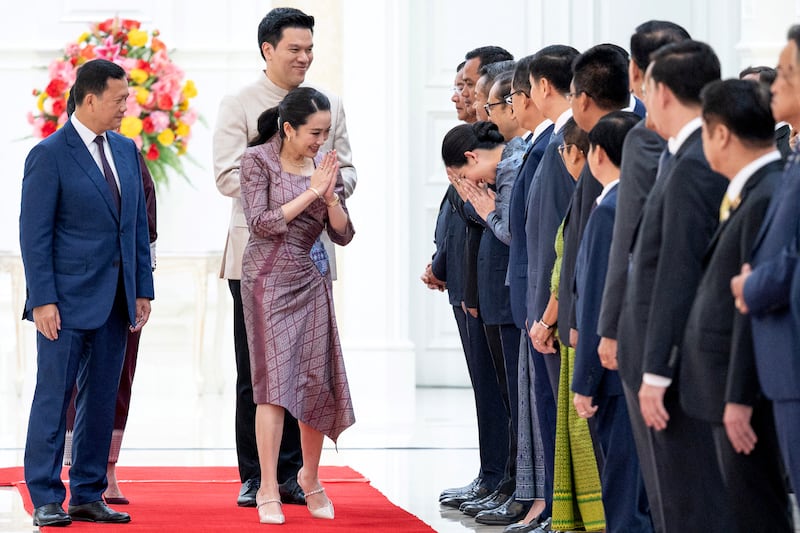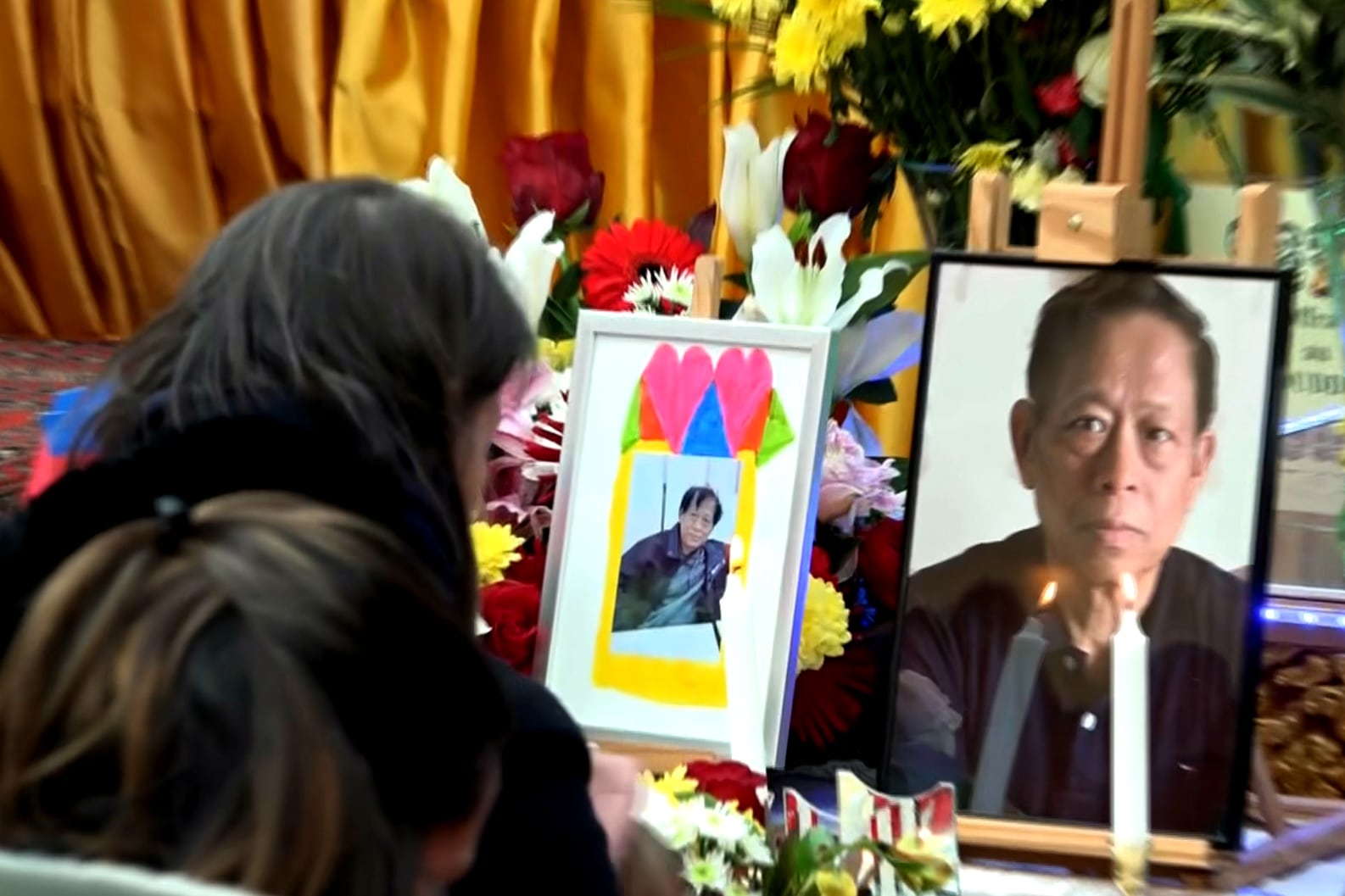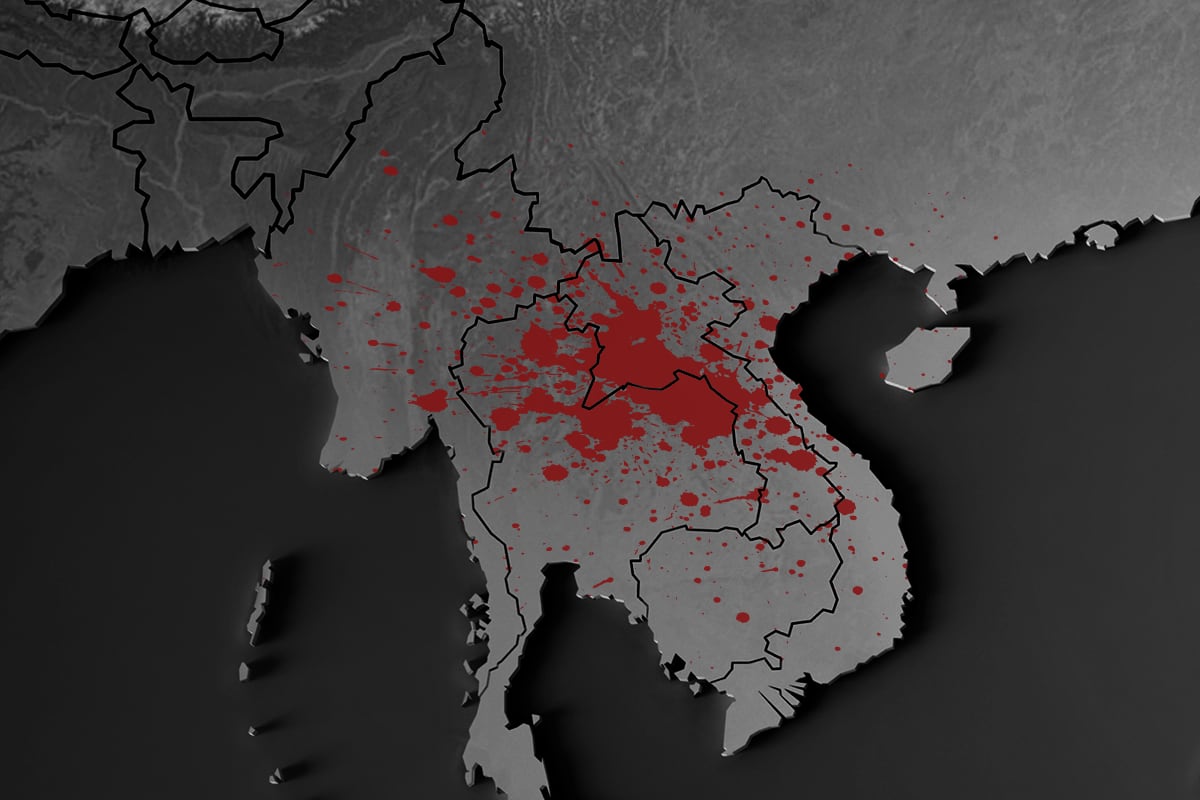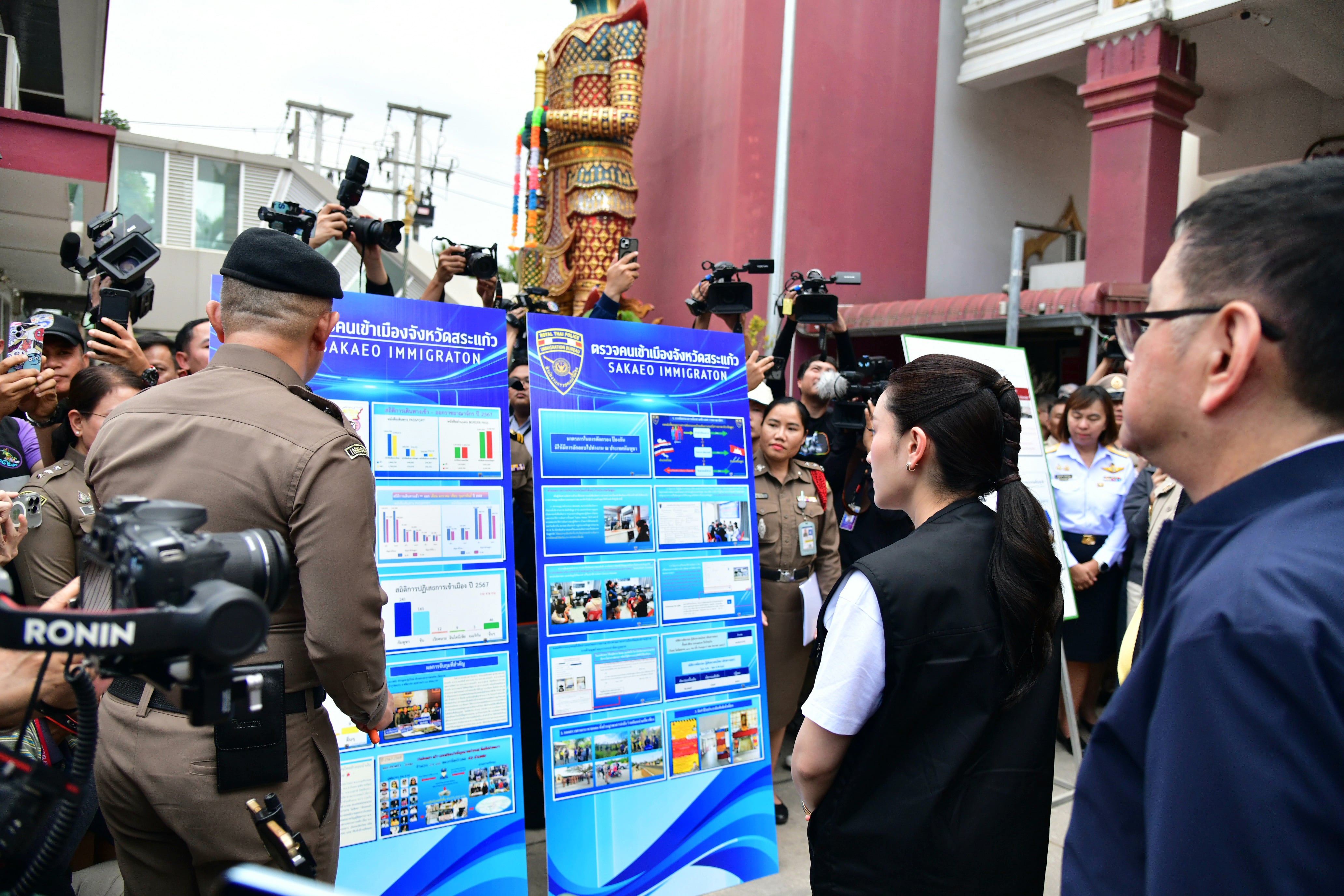BANGKOK - The Cambodian prime minister on Wednesday thanked Thailand for not allowing its territory to be used to “interfere” in Cambodian affairs as a human rights group accused the two governments of running a repressive “swap mart” to silence each other’s dissidents.
Prime Minister Hun Manet offered his thanks during an official visit to Phnom Penh by Thai Prime Minister Paetongtarn Shinawatra marking the 75th anniversary of modern diplomatic ties, which began in 1950.
Manet and Paetongtarn signed cooperation agreements on labor and workforce skill development, road maintenance, cross-border bridges and transnational pollution control.
The relationship between the two neighbors is sometimes turbulent. They have had occasional violent clashes over territorial disputes. But there’s been an increasingly pliant attitude between them when it comes toward treatment of political opposition figures who shelter on each other’s soil.

“I would like to thank Thailand for its core policy for not allowing any individuals to use Thai territory to interfere with the internal affairs and activities which created dangerous situations for Cambodia. The Cambodian government will practice the same policy,” Manet told a joint news conference.
Human Rights Watch on Tuesday called out that kind of cooperation in blunter terms. It accused the two governments of engaging in a “swap mart” or reciprocal arrangements targeting dissidents and opposition figures.
It said “both governments have facilitated assaults, abductions, enforced disappearances, and the forced return of people to their home countries where their lives or freedom are at risk”.
“Prime Minister Paetongtarn should press her Cambodian counterparts to end transnational abuses that discredit both countries globally and to put their relationship on a rights-respecting footing instead,” Elaine Pearson, Asia director at Human Rights Watch, was quoted as saying.
Since a 2014 military coup in Thailand by the then-army chief against an elected government, Bangkok has been accused of cooperating with authoritarian governments in neighboring countries in the detention and repatriation of dissidents, particularly from Cambodia, Laos and Vietnam.
The rights group said that Thai authorities have frequently used immigration charges to justify the unlawful deportation of Cambodian dissidents and activists without any due process guarantees, including those recognized as refugees by the United Nations High Commissioner for Refugees.
There’s also been incidents in which Thai nationals have been targeted in neighboring countries. A prominent pro-democracy activist, Wanchalearm Satsaksit, was kidnapped by armed men in Phnom Penh in June 2020 and hasn’t been seen since.
Human Rights Watch also highlighted that Cambodian authorities have failed to arrest suspects responsible for killing Lim Kimya, a former Cambodian opposition lawmaker in Bangkok on Jan. 7, 2025. The Bangkok Criminal Court has issued arrest warrants for two Cambodian nationals who are both connected to high-ranking Cambodian government officials and remain at large.
Edited by Mat Pennington.



